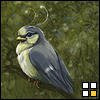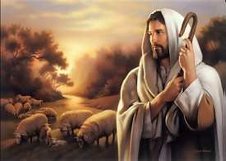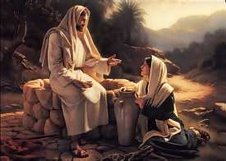Asherah, what a beautiful name. It's a female name straight out of the Bible. It's a name that would make any female feel like a - female. Pronounce the syllables and it just flows off your lips. The meaning of this name goes deep, deep into areas that are known by very few. Maybe the history buffs know about this name. Maybe it would be known by those who spend time studying the Word to get a clearer understanding of what this name, Asherah, is all about.
I've spent the past few days reading, cross-referencing, looking on the internet, and studying many of the books I have about the Bible on this name. What I have learned is very different from what the Mormon church teaches about this name. Whether this name is used singular or plural, it doesn't matter, they are interchangeable. All cultures past and present give the same end explanation.
From the earliest of Biblical times and cultures, every nation had an equivalent to this name Asherah. One nation of particular interest is the Canaanites. Asherah was the consort (or wife) of EL, the chief Canaanite god. She was revered as the "creature of creatures," and "the mother of many off spring." She was also the mother (or grandmother) to Hadad whom the Canaanite people refer to as "Baal" (offspring of EL, father of the gods) one of the many Canaanite gods. This is the same Canaanite cult god who Melchizedek was a great high priest to.
Asherah is the pagan goddess of fertility. The Mormon church has decided to put their connection to this fertility goddess within their Book of Mormon. Mormonism believes in a heavenly mother and the apologetics are using Asherah as a symbol for their "tree of life" story. They are connecting the tree of life as a representation of their heavenly mother (or Asherah). [Asherah is known as the "Lady of the Sea" and she takes on the form of a tree.]
This fluid name of life is a cult symbol. It was an extremely bad symbol in Biblical times and it is still bad now. The Bible mentions this pagan goddess' name at least forty times. All scripture references refer to Asherah as a very wicked and cultic symbol. The "pole of Asherah" (made of wood) was destroyed many times by the prophets of old by direct instruction from a very angry Heavenly Father who was extremely jealous over the worship if this idol.
God ordered the faithful to "Break down their alters, smash their sacred stones, cut down their Asherah poles and burn their idols in the fire." Deuteronomy 7:5. Here are a few other Bible references you need to read on the subject as well: Dt. 12:3; Ex. 34:13; Judges 2:13; Job 9:8; 2 Ch. 33:15; Eze. 8:3; 2 Kings 23:6, 12; 1 Kings 14:15. To name a few.
Mormonism needs to realize that Asherah is a pagan idol of which God hates. Asherah is not a symbol of a heavenly mother and it is not a consort of the true Heavenly Father.
God will not be mocked.
Asherah, is Mormonisms Mother in Heaven?
Labels: Asherah , cult , Mormonism , Mother in Heaven
A Familiar Spirit and Mormonism
"Those who are well acquainted with the teachings of the Bible know that the words "familiar spirit" are always connected with witchcraft." (Mormonism, Magic and Masonry, Jerald and Sandra Tanner, Utah Lighthouse Ministry, 1988, pg. 60)
The teachings in the Bible are clear that "familiar spirit" is based on evil. According to Sandra Tanner, those words are used fifteen times in the Bible. Take a little time and look up a few of the verses for yourself:
Leviticus 19:31; 20:6, 27
2 Kings 21:6; 23:24
1 Chronicles 10:13-14
2 Chronicles 33:6
1Samuel 28: 3, 7-9
Deuteronomy 18:10, 11
Isaiah 8:19
Isaiah 19:3
Isaiah 29:1-4
"familiar spirit, the spirit of a dead person, allegedly consulted by mediums who issued prophetic advice of a secular sort. Consultation of mediums was forbidden in the O.T. (Lev. 19:31, 20:6, 27; Deut. 18:11) as apostasy from Yahweh. Mediums were punishable by death. King Saul had put "those that had familiar spirits, and the wizards, out of the land" (1 Sam. 28:3)...Josiah put away familiar spirits, together with many other "abominations" (II Kings 23:24). Isaiah (8:19, see also Isa. 19:3, 29:4) protested against consultation with those who had familiar spirits, and "wizards that peep, and that mutter." (Harper's Bible Dictionary, Madeleine S. and J. Lane Miller, Harper & Brothers, Publishers, New York, 1988, pg. 185)
Within Mormonism, their authorities (who are following after Joe Smith) have staked a claim on Isaiah 29:1-4. They say that it is a prophecy of the coming forth of the Book of Mormon. The truth is - this particular passage of scripture is a prediction of the destruction of Ariel, the city of Jerusalem. It is not what Mormonism claims it to be. Christianity and Judaism both know the correct translation and meaning of this scripture, Mormonism does not.
The Mormon apologetic's have given their best shot at trying to rationalize the Book of Mormon's use of the term "Familiar Spirits" written in 2 Nephi 26:15-17. "The word "familiar" has several meanings in English, according to Hoskisson. The most common meaning is "to be acquainted with." Hoskisson showed how applying this understanding of the word affects how the scripture is interpreted. It is certainly true that the Book of Mormon will have a spirit about it that will be familiar to those who know the Bible; they will recognize the same spirit in both books, he wrote." (Mormon Times) [Love how they twist the words around, cleaver, very sneaky!]
The Bible and the Book of Mormon do not have the same spirit - The Bible has the Spirit of God, the Book of Mormon has the spirit of Satan.
"In the light of these references, the Apostle Richard's statement that the "Book of Mormon...has a familiar spirit," appears to be nothing to boast about...Joseph Smith tried to tie into the Isaiah passage by claiming that the words found in the Book of Mormon would be "as one that hath a familiar spirit" (2 Nephi 26:16). Smith's use of these words certainly casts serious doubt on the divine authenticity of the Book of Mormon." (Mormonism, Magic and Masonry, Jerald and Sandra Tanner, Utah Lighthouse Ministry, 1988, pg. 60)
Labels: cult , Familiar Spirit , Mormonism










